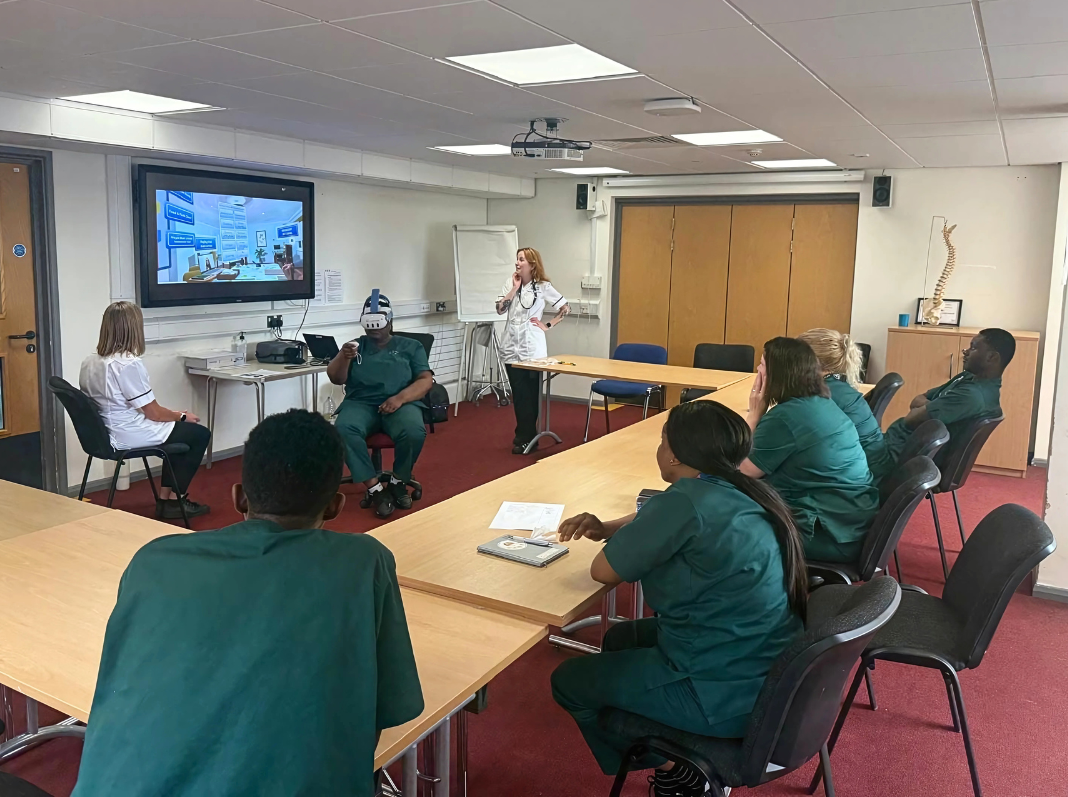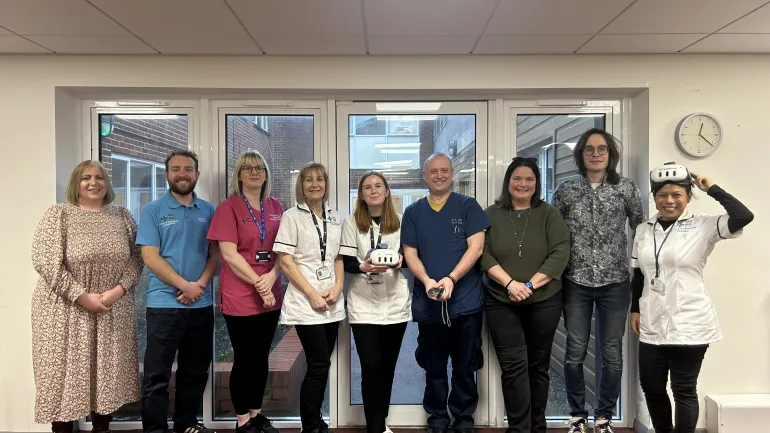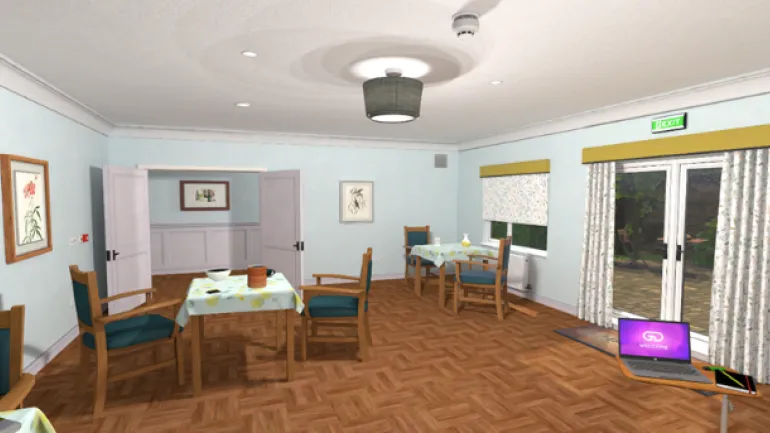Following the rollout of the Virtual Reality (VR) training programme for social care staff in Bridgend in March 2025, the project is continuing to make significant impact, enhancing staff competency.

Between 50-75% of residents in nursing homes suffer from dysphagia (a swallowing difficulty), with 1 in 10 over the age of 65 taking more than 8 medications per day, and 1 in 4 over the age of 85 taking more than 8 medications per day.
The immersive VR training, developed by Goggleminds, equips social care staff with the skills and confidence to handle dysphagia-related emergencies. Dysphagia can occur from food, fluid, saliva or medication, and can have many implications on patients. This can include difficulty taking/missing medication, a decline in physical or mental health, fear of coughing or choking, reduced enjoyment of eating and drinking, hospital admission, and increased malnutrition risk.
Jodie Miller (Speech and Language Therapy Associate Practitioner), Lynne Burgess (Generic Therapy Assistant Practitioner), Rhiannon Edwards, and Thomas Bush (Dietetic Assistant Practitioners) have delivered the VR training module to social care teams in Bridgend, providing a practical and immersive training module that replicates real-life swallow assessment consultations. Allowing staff to engage in patient interactions within a realistic virtual environment, improving patient safety and care.
Jodie Miller, Speech and Language Therapy Associate Practitioner, Cwm Taf Morgannwg University Health Board said:
“Including theoretical and practical sessions has seen positive feedback and effective application of real-life scenarios. The VR simulation has enabled staff to apply what they learned in the sessions into real life and has been a key factor for increasing engagement and practical understanding.”
A member of staff participating in the training, said:
“When I put on the Goggleminds headset, it gave me the opportunity to understand what we’ve been discussing [in the training], joining the theory and practical, and gave me more insight into how a resident might feel and what to observe.”
“It creates a safe space. You haven’t got to worry so much. You know it’s virtual, you know you can make mistakes, and you can learn from them without harm to anyone. When they [the virtual resident] take different levels of fluids, you can see from the images and sound as it goes down. So, you know if it’s going clearly, or if they’re having difficulty swallowing it.”
“Sitting in training of 3-4 hours just listening to somebody, everyone is getting bored of that, so this is really motivating.”
The introduction of VR training is not only used in care home training, it’s also expanding to train community carers in Bridgend. Trainers like Jodie recently integrated the VR simulation into a recent Enhanced Community Care (ECC) staff training session. Supplementing traditional ECC training with interactive, practical tasks such as thickening drinks and selecting appropriate diet textures, allowing staff to practice and see this with a lifelike patient through the VR headset. This blend of practical and virtual learning is resonating widely, with teams from across Cwm Taf Morgannwg University Health Board eager to take part.
Awareness and word of mouth has enabled the training to be delivered to other supportive staff in the community. Staff are actively seeking out the training, with requests often sparked by positive feedback from colleagues. The VR initiative (initially targeted for nursing staff, nursing assistants, and senior care home staff), is highlighting staff voices, real-world application, and expansion well beyond its original scope, demonstrating significant impact on staff engagement, confidence, and ultimately, patient care.
Louise Baker, Project Lead, Life Sciences Hub Wales said:
“The enthusiasm from social care teams is substantial. Word of mouth is extending the programme, and now we’re delivering it to other supportive staff in the community. Offering this training more broadly isn’t just about meeting competency requirements, it’s about building awareness and capacity across the teams. To see this enthusiasm and momentum in just three to four months since the roll out is substantial for the project.”
The VR training programme is demonstrating a significant impact on staff engagement, confidence, and patient care, highlighting its value and potential for broader implementation.


